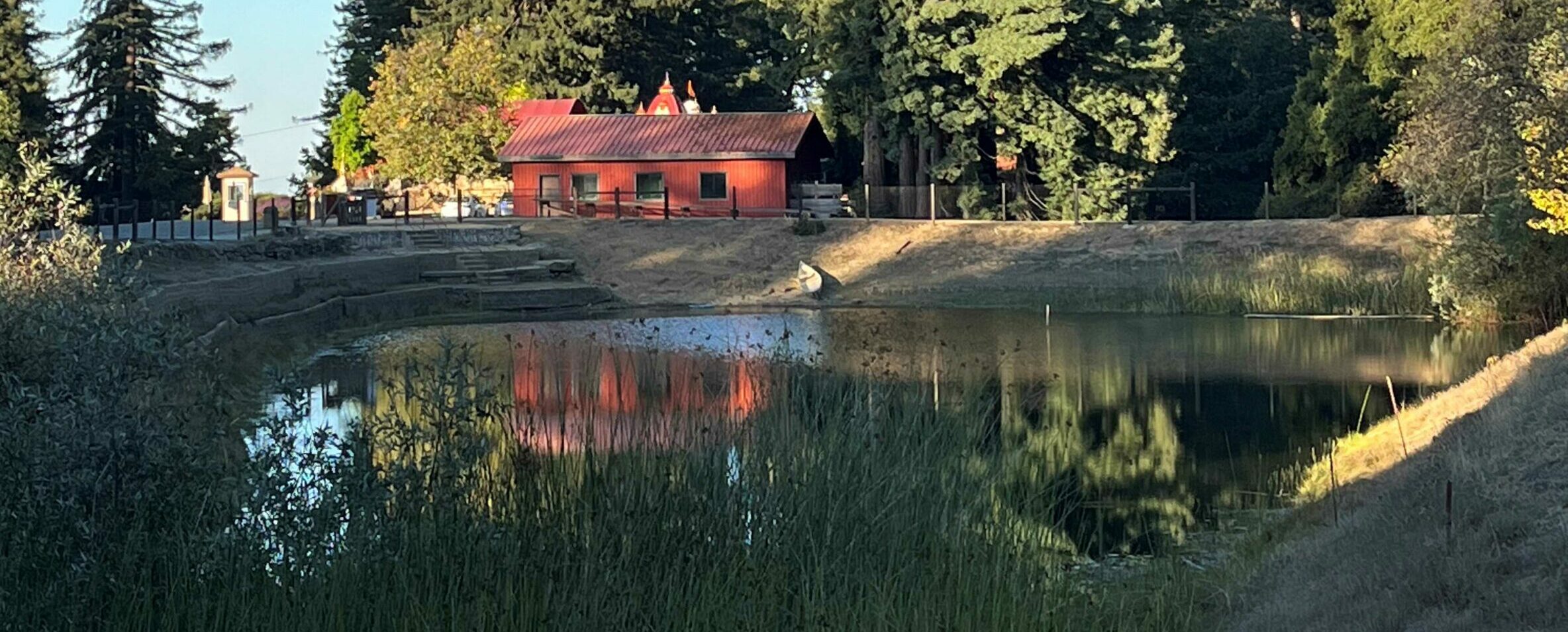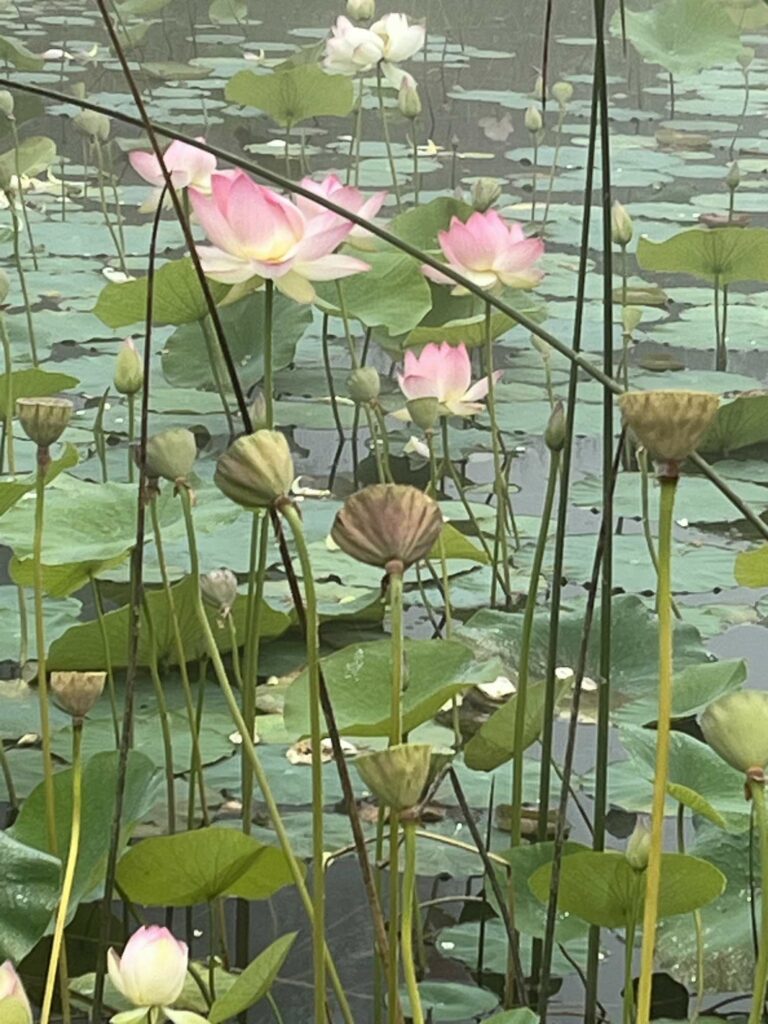Lake has been a focus for students for years
![]()

Photo courtesy Mount Madonna School
By Staff Reports
On a recent October afternoon, wind-blown cumulus clouds filled the sky and sunlight permeated towering redwood trees and grassland meadows, reflecting off the water of a small lake on the Mount Madonna School campus. As senior students navigated a short hillside trail from their classroom down to the lake, they chatted and took in an expansive view of Monterey Bay.

Photo courtesy Mount Madonna School
The students were accompanied by teacher, Sara Sobkoviak, and guest Sukhdev Pettengill, a former Mount Madonna Center resident, whom the students had invited to talk about the lake’s origins and water quality testing, in preparation for new water quality testing they will initiate. This field meeting is part of a year-long collaborative class effort ﹘ the Senior Capstone Project ﹘ with students committed to revitalizing and enhancing the lake ecosystem with native flora and fauna; developing an educational component to share with other students, lakeside signage; birdhouses and “forest mailboxes.”
“We chose this project mostly because we really like the lake,” said student Logan Shaw.
Student Beatrice Miller, the assistant project manager, asked Pettengill if there are water quality concerns as regards to wildlife — including the abundant deer and turkeys — drinking from the lake’s waters. While all warm blooded animals carry E. coli bacteria, Pettengill told them it isn’t a huge concern as the water isn’t potable. He suggested any testing should include checking for bacteria, for informational purposes, as well as looking for nitrates, which are harmful to humans.
In previous years, MMS high school seniors have created and presented individual capstone projects. This year, Sobkoviak proposed the idea of a single collaborative group effort to be selected by the students. Students unanimously chose to work on helping to revitalize the lake ecosystem.
Once their project focus was selected, students self-organized by writing their own “job titles” and descriptions, making agreements and norms as a framework for each class, and even incorporated a project management tool, Notion, to help them stay informed on timelines, communications and project processes. They also drafted a mission statement, a list of objectives and identified the stakeholders who will be impacted by the project.
Their project scope includes reducing the populations of some of the non-native invasive species such as bullfrogs and the waterweed, elodea. The elodea, frequently used in home fish tanks and aquariums, may have originally been introduced by someone emptying a home set up years ago — along with non-native goldfish, which through the years have multiplied.
“I’m interested in the water safety aspects of the project and helping to clear the water of elodea,” said 12th-grader Wyatt Adams.
Elodea removal got underway a few weeks ago, with an MMC resident operating an aquatic “harvester,” its mechanical “jaws” grabbing large swaths of the waterweed from open sections of the lake and piling it on the shore, to later be composed. Next spring, the senior students themselves will hop in the water and complete a manual removal of additional elodea that is growing around a protected lotus garden at one end of the lake.
The students have dubbed their effort The Lotus Project, in recognition of a healthy grove of Nelumbo nucifera lotus, which are a distinct and visible feature along the lake’s northeast shore. Student Sophia Manzur is the project’s social media manager and Cy Harris is the lead designer. Harris designed a colorful lotus blossom logo to help brand the project, while Manzur curated a color palette based on the design to use for social media posts tied to the logo.
The lotus are in full bloom during the late summer and early fall, drawing the eye of students, visitors and the broader community. The original lotus were introduced into the lake 10 to 15 years ago by MMC community member Sudhir Dass, who added seeds and tubers donated from a local gardener’s pond. The species is not invasive and there are no plans to remove it from the lake waters.
“As a photographer I was attracted to the lotus flowers,” said Dass. “They of course have spiritual significance, particularly in the Buddhist cultures.”
The lake sits on a 380-acre property shared by the school, MMC residents and guests, and the Mount Madonna Institute, a classical yoga school and Ayurvedic college.
“The lake has been a beautiful part of my childhood since I came to MMS in kindergarten,” said student Anya Gonzalez, fondly recalling time spent at and around the lake, including morning hikes with her classmates and teachers.






